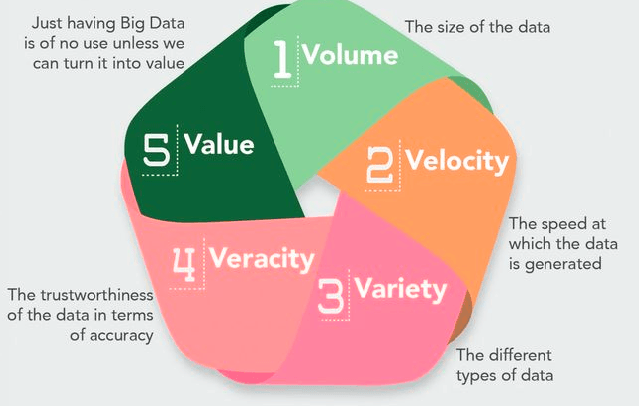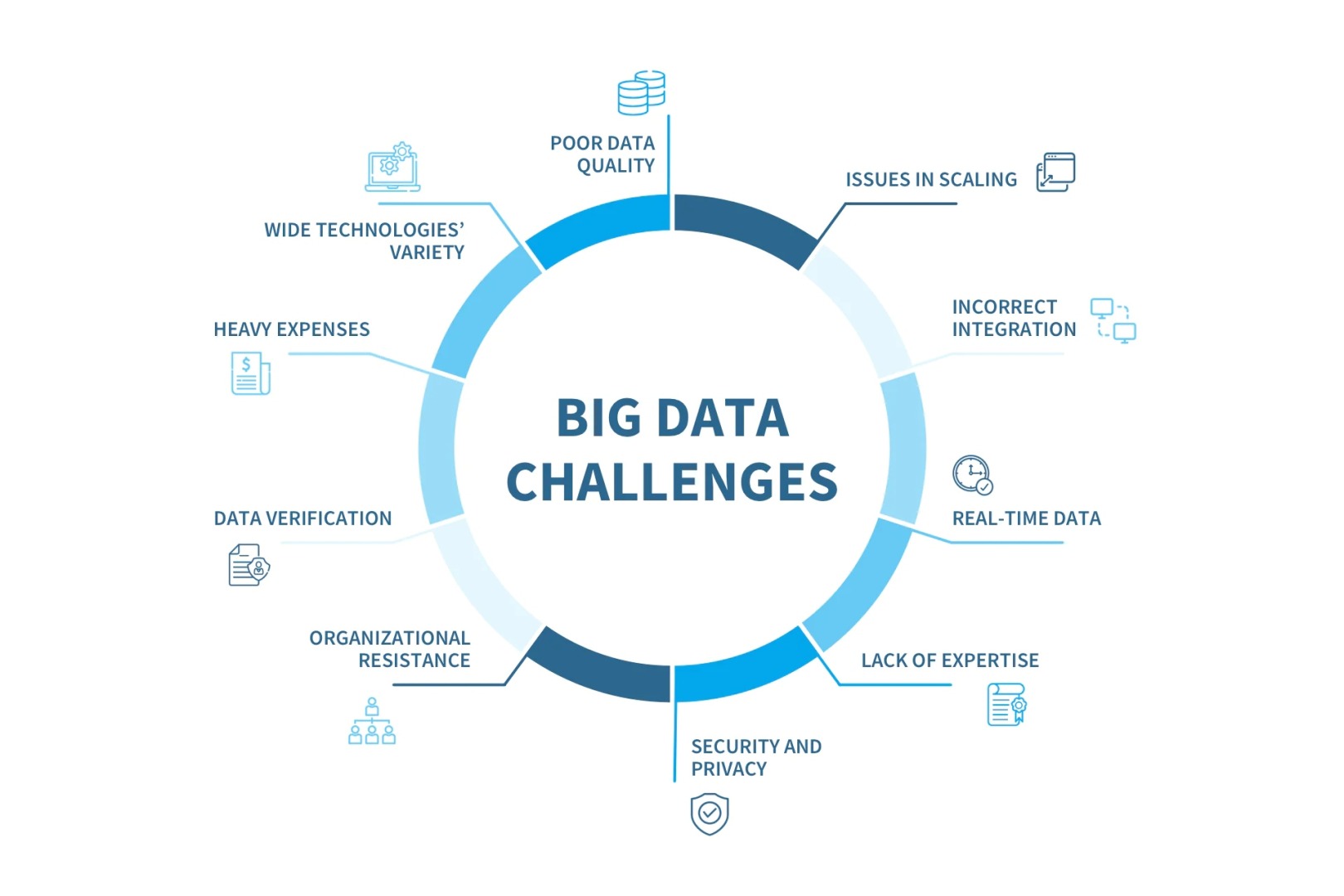Comments
- No comments found

Data is inarguably the key to organizational innovation, providing immense opportunities to companies for making informed business decisions.
While most organizations adopt big data in a positive way, they should also take into account its dark side.
Big data has tremendous strength to transform businesses and their way of conducting business. Today, organizations are greedily finding ways to outshine in the ever-increasing competitive landscape; big data paves them a way to fulfill their aim. Big data, if analyzed appropriately, uncovers hidden patterns and informative insights that help businesses enhance their operational efficiency. If the sources are to be believed (and I see no reason why we shouldn’t), 60% of American companies have adopted big data analytics to harness the power of big data. This statistic indicates that big data is reaching the mainstream. While we see that a majority of companies in America are harnessing big data, it is also vital that they consider big data’s potential to harm us. It might be hard for us to believe, but the reality is, there is a dark side of big data too.

The rapid influx of data requires organizations to process and analyze information in real-time. Failure to cope with data velocity can lead to delays in decision-making, hindering the agility that big data promises.
The sheer volume of data generated daily necessitates efficient storage and retrieval mechanisms. Inadequate handling of data volume can result in storage bottlenecks and hinder the scalability of data analytics.
While collecting vast amounts of data, organizations must ensure that the insights derived translate into tangible business value. Focusing on value avoids the accumulation of irrelevant or redundant data.
The diverse sources and formats of big data require adaptable analytics tools. Successfully managing data variety allows organizations to derive insights from a multitude of sources, enhancing the comprehensiveness of analytics.
Ensuring the accuracy and reliability of data is paramount. Inaccurate or unreliable data compromises the integrity of analytics outcomes, leading to flawed decision-making.

The relentless adoption of big data has led companies to prioritize their attention in resolving the three major significant data issues mentioned below.
Internet users are a growing population. One of the benefits of the Internet is to provide convenience to its users. We use the Internet to browse, make an online payment, surf social media, and do much more. Every time we go online, we leave a trace. Our confidential information gets trapped in the digital space without us noticing. Moreover, in some corner of this digital world lie the ‘grifters,’ who are waiting lustily to steal our personal information. We would certainly not like to share our details. The more we spend time online, the more we get tricked to disclose our information. For instance, you could click on a ‘free coupons avail now’ call-to-action option and land on a fake website, and reveal your information that is sensitive, becoming a victim.
With the advent of modern-age technologies, don’t you think that your privacy is being compromised? The outbreak of IoT-connected devices has led to a considerable problem of stealing our private data. Wearables, implantable devices, smart homes, smart vehicles, and many such day-to-day IoT-connected devices gather useful data in real-time through sensors. The collected data helps organizations to gauge our behavioral patterns, which then allows them to improve or innovate their services for staying relevant in this competitive world. It is evident that customer-based organizations are benignly utilizing our data, but what about our privacy?
There are multiple sources of big data, from where companies gather information about us. For example, social media platforms, IoT data, our clicks while surfing the Internet, and so on. Companies should prominently consider collecting only meaningful and high-quality data. Why? If organizations focus more on the quantity of data rather than the quality, then they will have to carry out complex data analysis on the data. The more the quantity, the more useless content the data contains. Besides, collecting low-quality data can harm us too. For example, we all are aware of the fact that AI algorithms are known for its ‘unbiased’ outcomes. However, what if the organization collects data that contains cognitive or gender biases? Naturally, developers will train the AI model with the bad data, developing a ‘biased’ AI model. Hence, organizations have to find a way to gather useful, crisp, and high-quality data only.
Organizations should incorporate a proper and stringent big data governance policy, ensuring that consumer data is not compromised, no matter what. With the right infrastructure, meaningful data, and IT experts, organizations can reap the benefits of big data to the optimum level.
Naveen is the Founder and CEO of Allerin, a software solutions provider that delivers innovative and agile solutions that enable to automate, inspire and impress. He is a seasoned professional with more than 20 years of experience, with extensive experience in customizing open source products for cost optimizations of large scale IT deployment. He is currently working on Internet of Things solutions with Big Data Analytics. Naveen completed his programming qualifications in various Indian institutes.
Leave your comments
Post comment as a guest